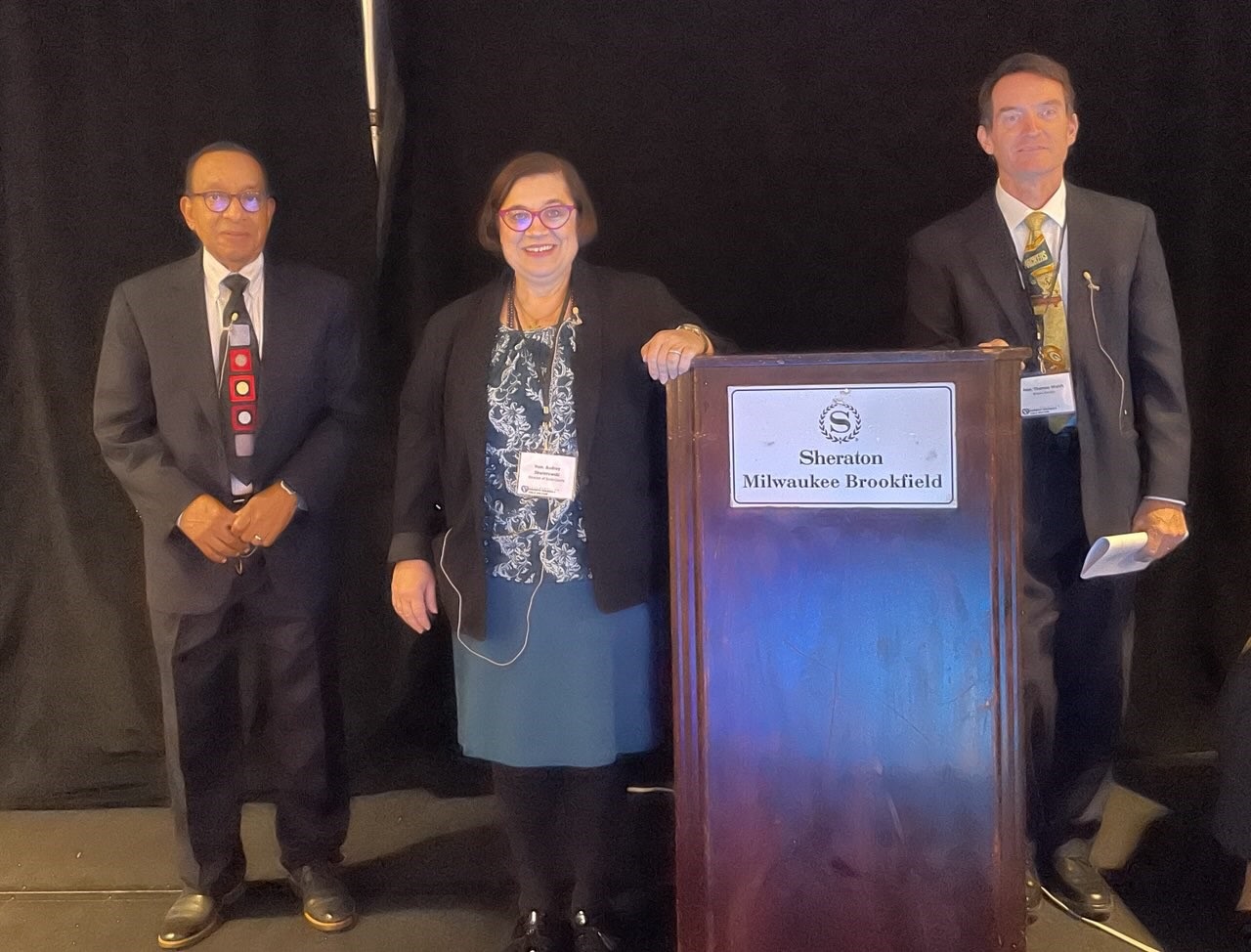The Children’s Court Improvement Program and the Office of Court Operations, through the court system’s VAWA STOP grant, recently brought together professionals and court officials from around the state to explore the relationship between domestic violence and child welfare and to develop actionable plans for improved collaboration across these disciplines. Co-chairs, retired Milwaukee County Circuit Court Judge Marshall Murray and Brown County Circuit Court Judge Thomas Walsh, welcomed over 300 people to the Summit on Domestic Violence and Child Welfare: Intersection and Action in Brookfield, Wisconsin, on October 24 – 25, 2024.
The conference proved to be a unique event with innovative plenary presentations from national experts and hands-on workshops. Summit activities benefited from the experience of diverse participants, including circuit and tribal court judges, court commissioners, victim/witness offices, attorneys, child protective services professionals, and state agency policy experts. The agenda included two “Team Time” sessions, which gave attendees the opportunity to reflect on the Summit’s information and apply it to their jurisdictions.

Wisconsin Supreme Court Justice Jill Karofsky opened the Summit by expressing her appreciation for those who strive to increase access to justice for survivors of domestic violence. Milly Gonzalez, Associate Director of End Domestic Abuse Wisconsin, and Adams County Circuit Court Judge Tania Bonnett gave the opening plenary by laying a foundational understanding of domestic violence. They educated participants about the root causes of violence and asked attendees to consider the notion that what happens in the home is reflected in society, and what happens in society is reflected in the home.
David Mandel, CEO, Founder and Owner of the Safe & Together Institute, offered the second plenary on the Safe and Together Model, which uses a perpetrator pattern-based approach to improve outcomes for adult and child survivors of domestic violence.
The Summit also included ten workshops on topics such as the impacts of domestic violence on immigrant survivors and their children, the collaborative relationship between Waukesha County’s child protective services and their local domestic violence program, Indigenous perspectives on domestic violence and child welfare; the Safe at Home Program; the Myth of the “Child Witness;” lessons learned from treatment court; the historical roots of corporeal punishment in Black communities; and a lived experience café, highlighting the voices of parents with lived experience. One of the most popular workshops, the lived experience café, allowed participants to listen to parents with experience in the court system related to domestic violence and/or child welfare. Attendees said they appreciated the opportunity for small-group discussions with powerful and impactful lived experience experts.
As a top priority, the Summit set out to create space for strategic planning so that tribes and counties could improve their understanding and response to the interrelationship between child welfare and domestic violence. Audrey Skwierawski, Director of State Courts, set the tone for this in her opening remarks on day two of the Summit with her words about recognizing the importance of ensuring people feel heard throughout the legal process instead of being focused exclusively on an outcome-oriented approach.
Participants next had an opportunity to work together on a case study designed to draw out the intersections of child welfare and domestic violence. Judge Murray and Judge Walsh led teams through the activity, posing questions and guiding discussions about a hypothetical fact pattern based on real-life scenarios.
To ensure the Summit accomplished its goal of “action,” Judge Murray and Judge Walsh concluded by inviting attendees to imagine how their jurisdictions can better serve victims of domestic violence in child welfare systems in the future.
Third Branch eNews is an online monthly newsletter of the Director of State Courts Office. If you are interested in contributing an article about your department’s programs or accomplishments, contact your department head. Information about judicial retirements and judicial obituaries may be submitted to: Sara.Foster@wicourts.gov

